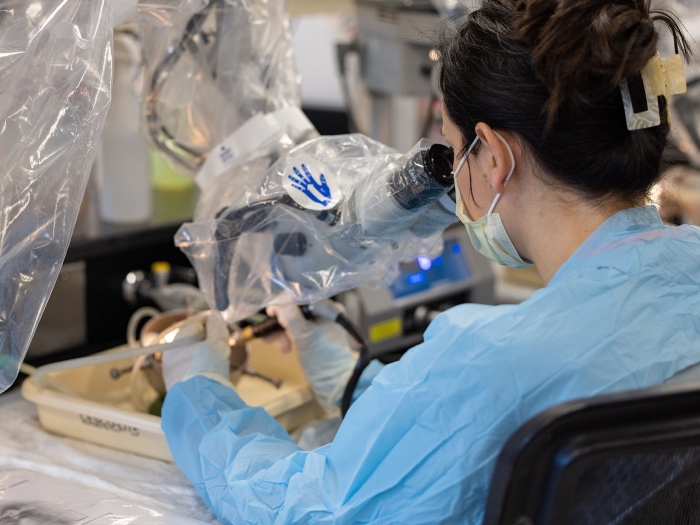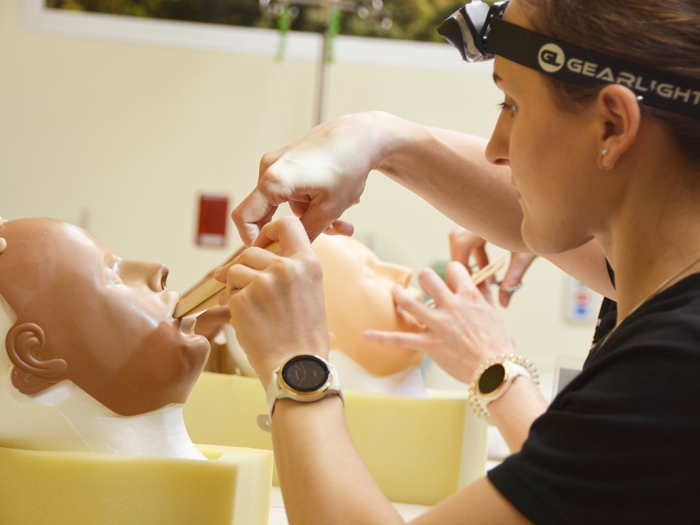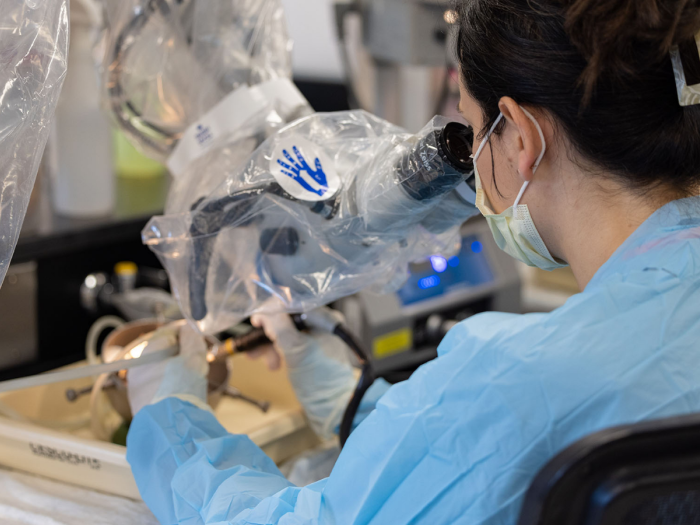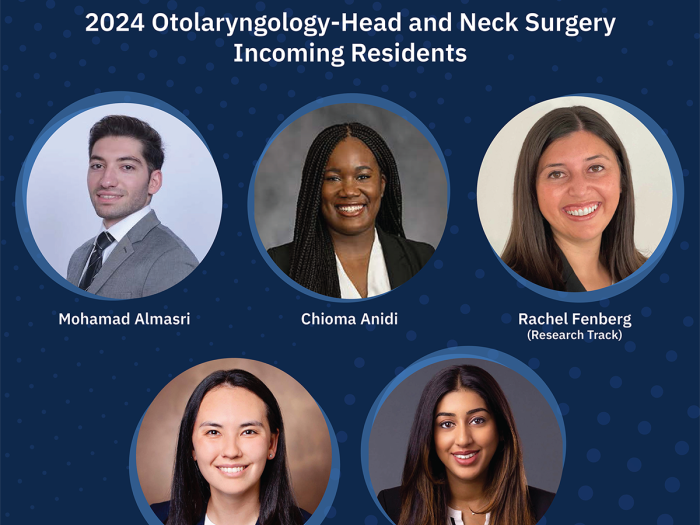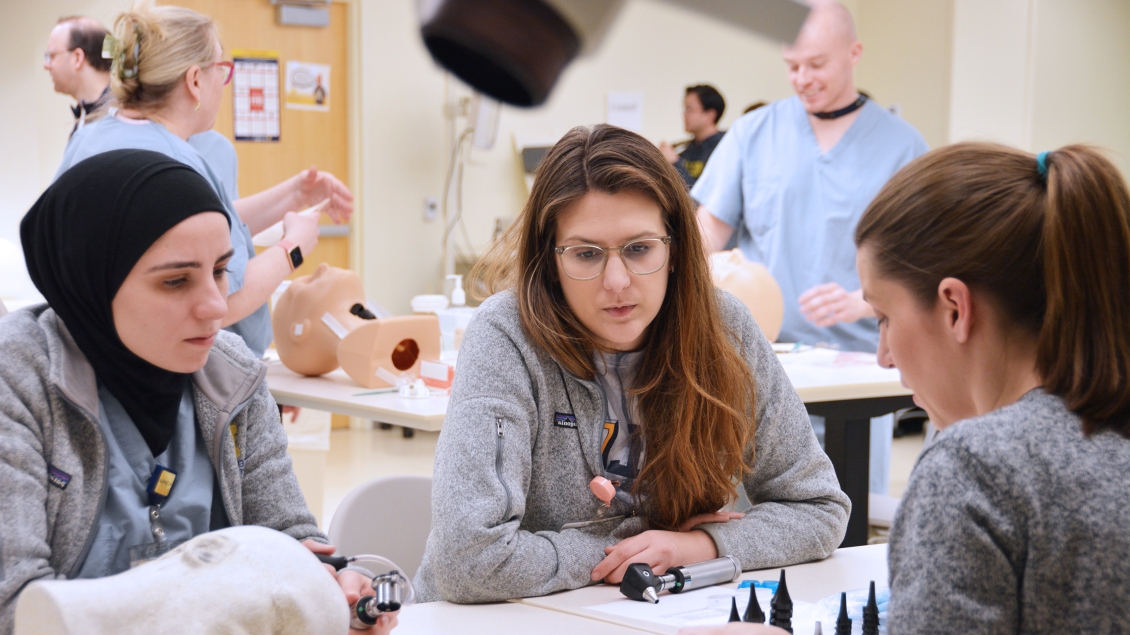
Learn from Dedicated Specialty Leaders
Thrive under the supervision of dedicated faculty and leaders of their specialties, in a multidisciplinary approach to training.
Established in 1904, the University of Michigan's Department of Otolaryngology-Head and Neck Surgery is among the first in the country. However, it's not just our historic beginnings that define us, but our enduring commitment to training the next generation of leaders in otolaryngology. Our residency program, recognized as one of the best in the nation, to our fellowship and medical student programs, and hands-on training courses are all guided by our top-notch, dedicated faculty to provide the full breadth and depth of otolaryngology training. Our programs are designed to allow learners to develop a skilled foundation while challenging themselves to excel and exceed the highest standards of patient care and research in their chosen subspecialty.
